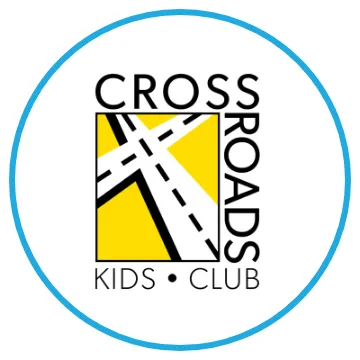Legal Information for Schools
Public schools are often concerned about the involvement of religious organizations in their extracurricular activities, and it’s important to address these concerns with clarity and legal accuracy. The information on this page provides guidance on the rights and responsibilities of public schools regarding Crossroads Kids Club.
While Crossroads is a faith-based organization, public schools are legally required to allow religious clubs the same access and opportunities as secular clubs. This ensures that schools do not engage in unconstitutional discrimination against religious expression.
No, on the contrary, public schools must allow religious clubs to host activities on the same basis that the school allows other, secular clubs to host activities. Public schools may not discriminate against an extracurricular program solely because of its religious character. In fact, disqualifying a religious extracurricular program from access opportunities which are open to other, secular extracurricular activities would be an unconstitutional penalty on the free exercise of religion.
It is true that the government may not promote any one religion; however, allowing Crossroads Kids Club to use government facilities is not government promotion of a religion. Rather, it is granting Crossroads Kids Club access to governmental facilities, on the same basis as to all other extracurricular groups (whether religious or secular).
Yes, Crossroads Kids Club is free to use the school’s facilities on the same terms as other extracurricular programs, such as the Boy Scouts of America, 4H, and other programs. For example, if the school allows extracurricular programs to hold meetings in classrooms after school during weekdays, Crossroads Kids Club should be permitted to meet during weekdays in an open classroom. If there is a rule which limits the times when the facilities are available to outside activities, the rule must be neutral and generally applicable. That means that the rule cannot single out certain types of organizations, such as religious organizations, and limit those groups in ways other groups are not limited.
Yes, if your school provides funds or grants to extracurricular programs generally, then Crossroads Kids Club is eligible to receive funding on the same basis as other clubs. For example, if the school makes funding or fee waivers generally available for extracurricular programs, Crossroads Kids Club may receive these funds as well. Any restrictions on funding must apply generally to all extracurricular organizations, not to religious extracurricular activities only. This is consistent with the requirement that the government must provide equal access to its services and other benefits.
If your school has an event which is open to participation from extracurricular programs, such as a family game night fundraiser or school fair, Crossroads Kids Club must also be permitted to participate on the same basis as other groups.
Yes, Crossroads Kids Club has a right to access and use communications resources on the same basis as other extracurricular programs. For example, if the school circulates an event calendar and permits outside extracurricular organizations to submit activities for inclusion on the calendar, Crossroads Kids Club must also be permitted to submit events. Furthermore, if other organizations are permitted to contact parents through a newsletter or listserv, Crossroads Kids Club must likewise be provided with these resources and permitted to use the resources on the same terms as other organizations.
Yes, Crossroads Kids Club must be provided access to post and advertise activities and events in any forum that is generally open to other extracurricular programs for such purposes.
Religious organizations have rights guaranteed by the United States Constitution, just like other groups and individuals, including the First Amendment rights to free exercise of religion, freedom of speech, and freedom of association.
More specifically, and has been recognized by the U.S. Supreme Court, the First Amendment allows adult-led clubs to meet at schools during any time when the school permits other clubs or groups to meet, whether during non-instructional time or during instructional time. The First Amendment’s constitutional protections are triggered whenever any public facility allows use of its facilities for certain persons or groups to conduct meetings.
A key legal precedent involves the Good News Club, which is an adult-initiated and adult-led extracurricular religious club like Crossroads Kids Club, designed to serve children from ages six through twelve years old. A public school district banned the club from meeting on campus, based on the school’s understanding that it could not permit a club meeting which engaged in religious instruction and might imply the school endorsed that religion. The Supreme Court rejected the ban as an unconstitutional viewpoint discrimination, and instead ruled that the government could not discriminate against speech within the “limited public forum” of a school. Religious clubs therefore possess the legal right to be treated neutrally and given access to speak on the same terms as other clubs. (See Good News Club v. Milford Central School, 533 U.S. 98 (2001).
